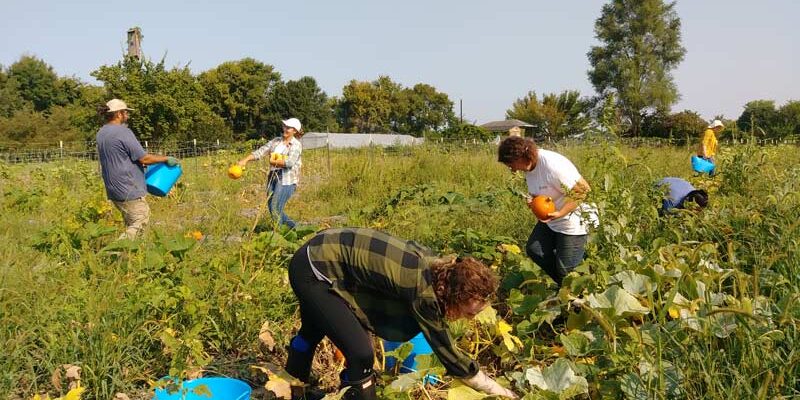Political Engagement Committee: Our Platform
On May 19, 2020, the Climate Change Task Force affirmed the following platform to inform and encourage discussion among the Providence Community, to aid in identifying candidates for elected office who support these positions, and to engage candidates in a discussion about policies related to global climate change.
From the Providence Climate Agreement:
“Mindful of the effects of climate injustice on the cosmos, Earth, and all creatures of Earth, particularly the most vulnerable, we commit to work for climate justice … We pledge … to advocate for strong environmental policy.”
This year is a pivotal year in the direction of our communities and our countries, no matter where we live. In states, counties, cities, and towns across the United States, we will choose the leadership that will guide us through some of the most challenging times we’ve ever faced. How these elected leaders address issues surrounding global climate change is not a side issue. It is, in fact, existential and is central to where we will be as a people far into the future.

The Political Engagement Committee of the Climate Change Task Force has explored and developed a platform to be used to:
- Inform and encourage discussion among the Congregation, its associates, staff and others regarding political aspects of global climate change,
- Aid sisters, associates, staff, and others in identifying candidates whose beliefs about climate justice may be similar to their own. This platform will help us ask about and understand their stances related to climate change and how they propose to move us forward as a local, state, national and global community, and
- Engage candidates and current leaders in discussion, likely virtually at this time, about policies related to global climate change via letters to the editor, web and telephone conversations, and other forums.
Platform Tenets
- We support the Green New Deal,
- We support placing a price on carbon,
- We support community resilience and livability,
- We support caring for Earth through sustainable agricultural practices, and
- We support reforestation and ecological restoration.
For each of these platforms tenets, greater detail and links to supporting articles are listed below:
- We support the Green New Deal as evidenced by:
- Support of a robust 10-year mobilization of effort to attain 100 percent clean, renewable, zero-emission electricity and new zero emissions,
- Support of equitable climate solutions that ensure that renewable energy must be accessible and affordable to all,
- Support for clean transportation that will promote employment,
- Support to electrify everything by building an economy powered by clean, renewable, zero emission energy and transition all energy sources in every sector to carbon free electricity, and
- Support of American jobs as a means to build massive investment in clean energy infrastructure.
Supporting Articles
How to reach U.S. net zero emissions by 2050: Decarbonizing electricity. (Scholars Strategy Network) Tabitha M. Benney, University of Utah, November 12, 2019
This is how the U.S. gets to zero carbon emissions by 2050. (The Fast Company). Adele Peters, November 21, 2019
Advancing inclusion through clean energy jobs. (Metropolitan Policy Program at Brookings), Mark Muro, Adie Tomer, Ranjitha Shivaram, Joseph Kane, April 2019
A blueprint for a carbon free America. National Geographic
Clean energy is building a new American workforce. (Environmental Defense Fund), January 2018
Report shows Texas leadership on solar and wind is helping safeguard our power grid. (Environmental Defense Fund Energy Exchange: Clean Energy), John Hall, March 13, 2020
Illinois’ clean energy jobs act puts people and climate first. (Environmental Defense Fund Energy Exchange: Clean Energy), Christie Hicks, March 12, 2010
2. We support placing a price on carbon which will promote equity and support low income families, workers, and frontline communities through energy transition.
Supporting Articles
Putting a price on carbon: Ensuring equity. (World Resources Institute), Noah Kaufman, Eleanor Krause, April 2016
Carbon pricing 101. (Union of Concerned Scientists), updated January 8, 2017
Building democratic support for equitable carbon pricing. (Scholars Strategy Network: Forum)
- The Challenge of Forging Sustainable Climate Policy – James K. Boyce, University of Massachusetts, Amherst
- Building Support for U.S. Climate Reforms with Universal Benefits – Michael Howard, University of Maine
- The Politics of Equitable Climate Policy – Leah Stokes and Matto Mildenberger, University of California, Santa Barbara
- A Citizen’s Approach to Carbon Equity: Voting on Rebates and Collective Investments – Peter Dorman, Evergreen State College
- The Challenge of Putting a Price on Carbon Emissions in the United States – Tabitha M. Benney, University of Utah
3. We support community resilience and livability as evidenced by communities being equipped to engage in sustainable climate action planning that:
- Integrates policies and practices related to advancing food justice,
- Advocating for transportation equity,
- Upholding civil and human rights in emergency management, and
- Facilitating participatory democracy.
Supporting Articles
Can citizen action stop climate change? (The Fast Company), Anya Kamenetz, February 19, 2009
Updated citizens’ climate action plan for Newton Now. (Green Newton), September 2, 2019
What are future cities? (Government Office for Science: Foresight), Emily Moir, Tim Moonen, Greg Clark, June 2014
Edible city solutions – one step further to foster social resilience through enhanced socio-cultural ecosystem services in cities. (MDPI), Ina Saumel, Suhana E. Reddy, Thomas Washtel, February 14, 2019
Space and food in the city: Cultivating social justice and urban governance through urban agriculture. Alec Thornton, Macmillan, 2018
Building resilient infrastructure in the fact of climate change in African cities: Scope, potentiality and challenges. (Development Southern Africa), Elmond Bandauko, Elias Maxhindu, Ndarova Audrey Kwangwama, Godfery Chikowore, 2016
The other infrastructure gap: Sustainability – human rights and environmental perspectives. (United Nations Human Rights), Heinrich Boll Stiftung, 2018
4. We support caring for the Earth through agriculture by:
- Reducing tillage,
- Expanding crop rotations,
- Planting cover crops,
- Reintegrating livestock into crop production systems, and
- Capturing the excess carbon generated by other related industries
Supporting Articles
Maintain healthy soil with crop relation. (Mother Earth News), Barbara Pleasant, February 2010
On farms and ranches, every day is Earth Day. (USDA), Bill Northey, April 22, 2019
4 ways farms steward the land. (American Farm Bureau: Foundation for Agriculture), January 3, 2019
How farmers are supporting the environment. (Modern Agriculture: Monsanto), February 17, 2017
Livestock farming with care: Towards sustainable production of animal-source food. (NJAS-Wageningen Journal of Life Sciences), M.C. Th. Scholten, I.J.M. de Boer, B. Gremmen, C. Lokhorst, November 2013
Animal agriculture is choking the Earth and making us sick. We must act now. (The Guardian), James Cameron, Suzy Amis, December 2017
Facts on animal farming and the environment. (One Green Planet), 2013
An H.I.S. report: The impact of animal agriculture on global warming and climate change. (The Humane Society International). 2008
5. We support reforestation and ecological restoration as it relates to:
- Carbon absorption,
- Protection of coastal communities,
- Shade and comfort, and
- The continued enrichment of plant and wildlife biodiversity.
Supporting Articles
Forest restoration, biodiversity and ecosystem functioning. (BMC Ecology), Raf Aerts, Honney, 2011
Restoration: It’s about more than just the trees. (World Resources Institute), Robert Winterbottom, May 28, 2014
Importance and advantages of reforestation. (Earth Reminder), October 28, 2019



Wow! What a vision! Thank you for posting and for your dedication and work as well.
Thank you so much for sharing this with all of us.